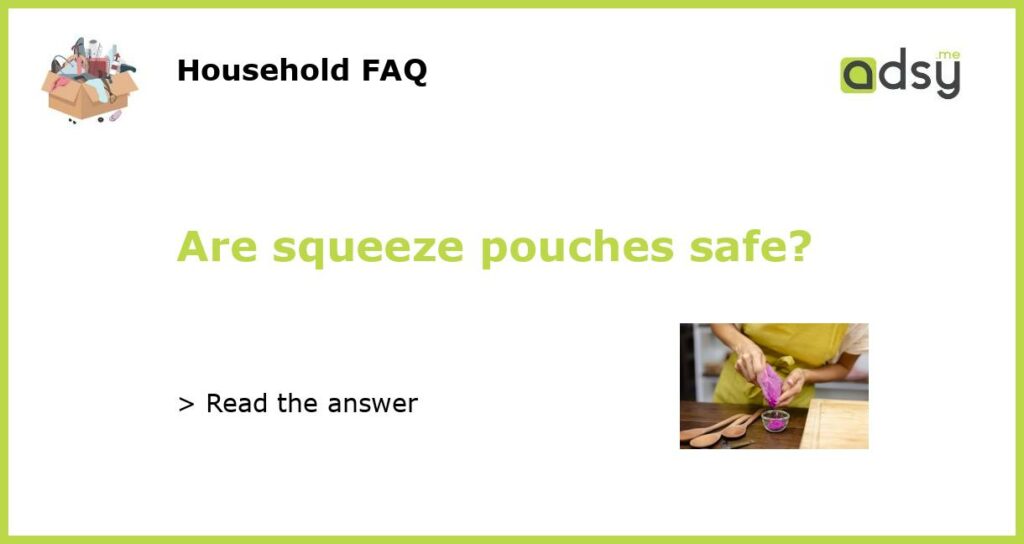Are Squeeze Pouches Safe for Babies and Toddlers?
Squeeze pouches have become increasingly popular as a convenient and portable way to feed babies and toddlers. These pouches contain a variety of pureed fruits, vegetables, and other ingredients, making them a convenient option for parents on-the-go. However, concerns have been raised about the safety of squeeze pouches. In this article, we will explore the potential risks and benefits of using squeeze pouches for infants and young children.
Potential Choking Hazards
One of the main concerns with squeeze pouches is the potential choking hazard they pose to young children. The design of these pouches allows babies and toddlers to suck out the contents, which can easily be done quickly and in large amounts. If a child accidentally bites off a piece of the pouch, it can become lodged in their throat, causing a choking hazard. This risk is especially high for younger infants who may not have the ability to chew and swallow effectively.
Minimizing the Choking Risk
While squeeze pouches do present a choking risk, there are steps that can be taken to minimize this hazard. One option is to purchase pouches that have a flow control feature, allowing for a slower and more controlled dispensing of the contents. Additionally, it is important to closely monitor children while they are eating from squeeze pouches and ensure that they are sitting upright and not consuming the contents too quickly. Cutting the pouch open and spoon-feeding the contents to younger infants may also be a safer alternative.
Nutritional Value and Ingredients
Another important aspect to consider when evaluating the safety of squeeze pouches is the nutritional value and ingredients contained within them. Some pouches may be filled with nutrient-dense fruits and vegetables, providing a convenient way to incorporate these foods into a child’s diet. However, it is essential to read the labels carefully, as not all pouches are created equal in terms of nutritional content. Some may contain added sugars, preservatives, or other ingredients that are not ideal for a young child’s diet.
Storage and BPA Concerns
Proper storage of squeeze pouches is important to ensure their safety. Pouches that are punctured or damaged should be discarded to prevent bacterial growth. Additionally, some pouches may contain bisphenol A (BPA), a chemical that is often used in the production of plastic materials. BPA has been associated with potential health risks, especially for infants and young children. Parents should look for pouches that are labeled as BPA-free to minimize exposure to this chemical.






